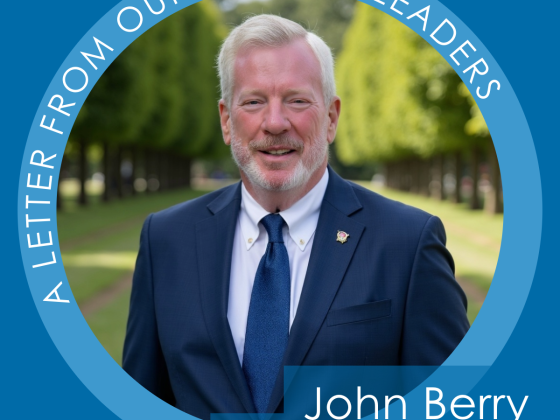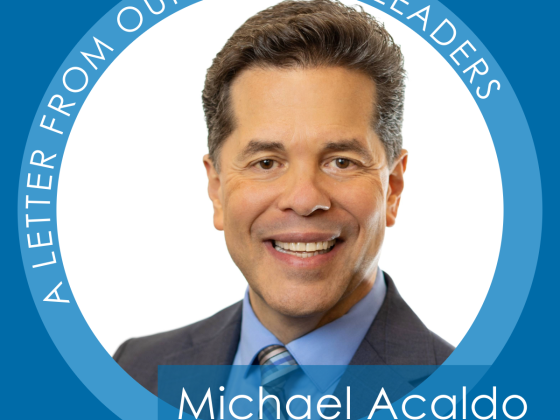Be Like Vincent
One of the many things I learned from Deacon Gene Smith, former President of the National Council, is that Vincent de Paul was actually a fundraiser. And not just a part-time, run-of-the-mill fundraiser, but one who set the standard for all of us.
So how do we non-saints (at least, that term applies to me) go about raising money to support our Conferences and those in need? After all, most of us are not professional fundraisers. It starts by creating a culture of philanthropy in your Conferences and Councils. I have seen firsthand how this type of culture can significantly increase funding — but only when people and organizations have the genuine desire to do so.
Where do we begin if we want to “Be Like Vincent?”
First: Become a Storyteller. Not just any storyteller, but someone who passionately shares with others the exceptional work of your Conference and/or Council. Tell people about the single mother you visited this week — how she is working two jobs and is still not able to pay her rent and utility bills because one of her young children has ongoing medical expenses. Talk about the veteran who skips meals in order to pay his rent, and the recently unemployed father who is desperately seeking work. These individuals would likely all become homeless if not for our efforts.
Although we might think we don’t have many stories to share, in fact, the stories are too numerous to count. Take a moment to reflect on the people you have met in just the last few days — I’m certain you’ll recall a story. I have often heard people say, “If only I had known about…. (fill in the blank) I would have gladly helped.” Let’s make sure they do know. We can tell our stories in-person, from the pulpit, during meals with friends and colleagues, in parish bulletins, in local newspapers, emails, mailings — the opportunities are virtually endless. The key is, we have to be willing to share the work we do as Vincentians with others. We simply must.
Second: Ask. Yes, ask. We cannot be afraid to ask others, anyone, everyone, if they would be willing to help a neighbor in need. Our true calling as Vincentians is to ask others to support our work. Some will say no, but think of how wonderful it is when someone says, “I’d love to help.” Not only are we then able to help more people in more ways, but we have also given the donor the opportunity to experience the joy and the satisfaction that comes with helping another person.
Few things bring as much fulfillment as knowing that our efforts made a real difference in the life of another. While I can still get nervous when asking someone for a gift to support St. Vincent de Paul, reciting the simple prayer “Come, Holy Spirit” reminds me that this is not about me. It’s never about me. It is between God and the other person. And even when someone says no, I’ve come to understand that many times, a no is simply a “not today.” Often at a later date, we receive a gift from that initial “no,” and it is sometimes far greater than anything we would have imagined.
Third: Say Thank YOU. Showing appreciation and gratitude — sharing with a donor how she or he made a “real difference” in the life of another person. Saying Thank YOU in person, on the phone, via email, and maybe best of all, through (multiple) handwritten notes, is essential. It is almost impossible to show too much gratitude, yet very easy to show too little.
I have never heard a person express unhappiness for being thanked multiple times. But I can’t begin to count the number of times when someone shared disappointment about being overlooked. An unexpected thank you letter, especially months later after a gift, provides another opportunity to “story tell” about how an individual’s contribution helped change lives and/or save lives. This is one of the greatest blessings we can provide to our donors. Additionally, showing genuine gratitude goes a long way toward helping secure future gifts, larger gifts, monthly gifts, planned gifts, and even estate gifts.
Creating this culture of philanthropy isn’t difficult, but it does take a real commitment. It doesn’t require an advanced degree or a high-priced consultant to be successful — what it does require is a Vincentian desire, to Be Like Vincent, to continue his legacy, and to become our own hero using the three steps to guide you:
- share stories
- ask others
- show gratitude.
I am reminded of one of my favorite quotes, from the movie A League of Their Own, when Tom Hanks (Jimmy) tells Geena Davis (Dottie; who just informed him that she was quitting the baseball team he manages because it got too hard):
“It’s supposed to be hard. If it wasn’t hard everyone would do it. The hard is what makes it great.”
If every Vincentian told one story each week (just one) and asked one person each week to support our mission (just one) and wrote one thank you letter each week (just one) — countless new individuals would become part of our Vincentian family, enabling us to serve more people. We would change our community. We would change our country. We would change our world. Think of how proud Vincent de Paul would be with each of us.
Please let me know how you are doing. Call or email me, I really mean that. I can be reached at (480) 556-7122 or szabilski@svdpusa.org. I’d love to hear from you, learn from you, and offer any thoughts or suggestions as each of us strives to “Be Like Vincent.”
Advent and Christmas blessings, and a prosperous New Year — may this be one of those resolutions we really do keep.
God Bless,
Steve Zabilski
2nd Vice President and Chair of the National Development and Communications Committee



Thanks for your useful message.
Victor Vera, E-mail: vvera@comcast.net, Tel. +1 509 995-5987